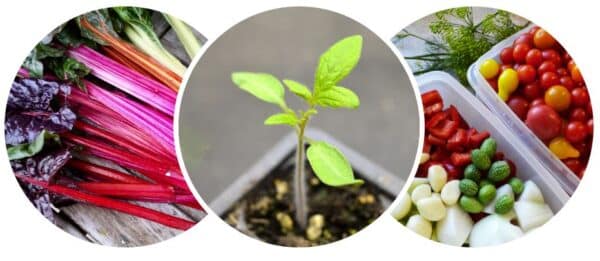Grow Better Food – Coming April 2024
Food is health – except when it isn’t. Our food supply isn’t getting us the nutrients we need, and it’s making people unhealthy.
A study published in 2004 by the University of Texas examined USDA nutrient data from 1950 and 1999 from 43 different garden crops. They found declines in protein, calcium, phosphorus, iron, riboflavin, and vitamin C. The declines ranged from 6% (protein) to 38% (riboflavin).
Another study published in 2020 found that the protein content in wheat fell by 23% from 1955 to 2016. This means our grain products are less nutritious, and animals that eat grains are getting less nutrition, too.

Grow Better Food – We’re bringing the nutrients back!
In our new membership program, Grow Better Food, we’ll help you grow and prepare truly nourishing food. The program includes:
- Gardening tips and troubleshooting – we’ll save money with homemade fertilizers, and reduce pest and diseases
- Boosting nutrition while growing and after harvest – healthy fruits and veggies last longer without spoiling
- Food preparation and storage for best nutrition
- Food as Medicine – many plants have powerful medicinal properties
- Learning how to use plants from “root to flower” – we’ll share how to use different parts of plants, like leaves and seed pods
You can sign up now for a 20% early bird discount when you join Grow Better Food. Our founding members will also get special heirloom seed packets and other surprise gifts.
Note: I had been using the name “Growing Healthy”, but decided to switch names due to another product with a similar name.
Why is Healthy Food Important?
Food plays a crucial role in maintaining good health and well-being. The relationship between food and health is complex, as different nutrients and compounds in food contribute to various aspects health. Here are some key connections:
- Nutrient Supply:
- Essential Nutrients: Food provides essential nutrients such as carbohydrates, proteins, fats, vitamins, and minerals. These nutrients are necessary for the proper functioning of the body.
- Energy Source:
- Calories: Food is a primary source of energy, supplying the body with the calories needed for daily activities and metabolic processes.
- Disease Prevention:
- Nutrient-Rich Foods: A diet rich in healthy foods can contribute to disease prevention.
- Antioxidants: Many foods contain antioxidants, which help protect the body from oxidative stress and inflammation.
- Weight Management:
- Balanced Diet: Maintaining a balanced diet helps in managing body weight. Nutrient dense foods are more satisfying, so you can eat less but still feel full.
- Digestive Health:
- Dietary Fiber: Fruits and vegetables provide a mix of fiber and liquid to help keep your digestion moving.
- Bone Health:
- Calcium and Vitamin D: Foods rich in calcium and vitamin D, such as leafy greens, help maintain strong and healthy bones.
- Brain Function:
- Omega-3 Fatty Acids: Foods rich in omega-3 fatty acids, like fatty fish, flaxseeds, and walnuts, support brain health and may help prevent cognitive decline.
- Immune System Support:
- Vitamins and Minerals: Adequate intake of vitamins and minerals, particularly vitamin C, vitamin D, and zinc, supports a healthy immune system.
Can’t wait to get brainstorming? Check out Get Started Gardening.
